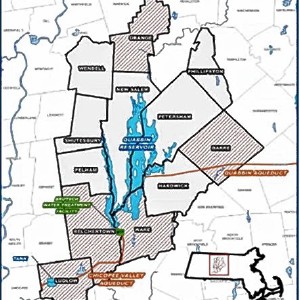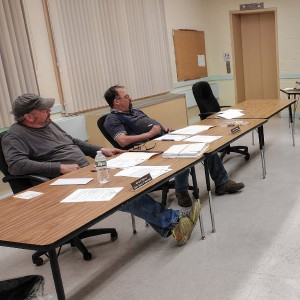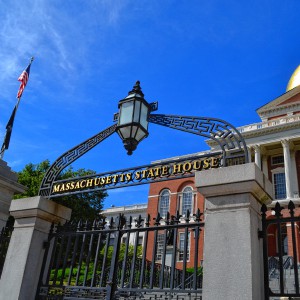McGovern faces pushback from activists on Cuba, Venezuela sanctions
| Published: 05-14-2023 5:00 PM |
NORTHAMPTON — Local activists for Cuba and Venezuela are calling on U.S. Rep. Jim McGovern to sign a letter to President Joe Biden condemning sanctions that they say have impacted the countries’ economies and contributed to a surge of migrants at the U.S. border.
Though he has demonstrated a deep interest in sanctions relief for both Cuba and Venezuela over his tenure in Congress, McGovern recently declined to sign the letter, citing strategic problems with linking the two countries in the request. He said sanctions relief should be negotiated separately and occur as part of a broader political agreement.
The letter was introduced by U.S. Reps. Veronica Escobar, D-Texas, and Raul Grijalva, D-Ariz., and as of May 10 was signed by 19 additional members of Congress. The letter coincides with the expiration of Title 42 and the subsequent expected surge of migrants at the southern U.S. border. Title 42, which expired Friday, allowed U.S. officials to turn away migrants who came to the border on the grounds of preventing the spread of COVID-19.
“People in Cuba … cannot get food, they cannot get medicine, they cannot get the fuel and energy they need to sustain themselves,” said Eli Smith, a member of the Anti-Imperialist Action Committee, which held a rally outside McGovern’s Northampton office on May 5. The committee is a western Massachusetts activist group that opposes U.S. imperialism and capitalism through grassroots organizing.
Demonstrators at that rally held signs reading “SANCTIONS KILL” and “HANDS OFF VENEZUELA” and said the letter is aimed at preventing thousands of deaths in Cuba and Venezuela resulting from U.S. sanctions.
“Experts widely agree that broad-based U.S. sanctions … are a critical contributing factor in the current increase in migration,” lawmakers wrote in the letter to Biden. “In light of their grave humanitarian toll on the peoples of those countries, and the significant logistical challenges that the resulting increase in migration is causing for federal, state, and local authorities, we urge you to act swiftly to lift the failed and indiscriminate economic sanctions that were imposed by the prior administration.”
Over the years, McGovern has spoken out repeatedly against sanctions on Cuba and Venezuela, written several op-eds and letters to the president, and traveled to Cuba. In January McGovern wrote a letter to Biden pressuring his administration to implement the Social Fund agreement that came out of negotiations last November between the Venezuelan government and its opposition.
McGovern wrote, “I especially welcome the agreement between (President Nicolas) Maduro and the opposition to use $3 billion of Venezuela’s frozen overseas assets to create a Social Fund for the basic needs of the Venezuelan people, using a shared governance structure to be managed and implemented by the United Nations.”
Article continues after...
Yesterday's Most Read Articles
 Quabbin region studied for MWRA expansion
Quabbin region studied for MWRA expansion
 Phillipston board opens talks on new police chief
Phillipston board opens talks on new police chief
 Orange man gets 12 to 14 years for child rape
Orange man gets 12 to 14 years for child rape
 With eye toward teaching firearm safety, Mahar’s Junior ROTC adding air rifles
With eye toward teaching firearm safety, Mahar’s Junior ROTC adding air rifles
 Sportsman’s Corner: Quabbin opens this Saturday
Sportsman’s Corner: Quabbin opens this Saturday
McGovern’s office said the congressman thinks the best immediate opportunity for getting real sanctions relief is to implement the Social Fund agreement, and that multilateral coordination makes policy more effective. His office pointed to an international conference on Venezuela held in April and attended by 20 countries, which concluded that “political agreements and lifting of sanctions must go hand-in-hand,” according to the statement.
These developments are not reflected in the letter in question, which is another reason McGovern didn’t sign it, his office said.
As for Cuba, just two days before the protest McGovern wrote an op-ed in the Boston Globe urging Biden to end sanctions and remove Cuba from the list of state sponsors of terrorism. Being on the list means that “private industry, faith-based groups, NGO’s, universities, and even foreign governments risk U.S. prosecution for nearly any kind of humanitarian aid, business, investment, or trade with Cuban citizens,” wrote McGovern in the op-ed.
Members of the Anti-Imperialist Action Committee, which has met with McGovern about sanctions policy over the years and in recent weeks, have been unable to reach the congressman since the demonstration, other than at a Pride parade held May 6 in Northampton.
“There’s a sense of urgency, and that’s why we held our rally outside his office. They wouldn’t return our emails and calls in his office, and he has been really difficult to reach and so we had to chase him down to actually have a conversation with him,” said Hector Figarella, a Venezuelan American and one of the organizers of Friday’s rally.
Figarella has lost multiple family members in Venezuela due to a lack of medicine caused in part by U.S. sanctions.
“I lost my father in 2017 to a blood clot that developed in his heart, and there was no medicine. There was no anticoagulant. And he died. He died in a hospital bed (of a condition) that all of us could walk down to CVS and get a prescription for,” Figarella said at the rally.
According to his office, McGovern is currently drafting his own letter to President Biden, which will be open to other members of Congress to sign.
“It would be great to have some input on that letter but we were not promised that,” Figarella said. “And we don’t agree with their explanation that it doesn’t make sense strategically for them. It doesn’t make sense.”
“Waiting for the letter, it’s just more time. People die every day because they can’t afford to buy certain medicine, or the hospital can’t afford to buy new equipment,” Figarella added. “We’ve been trying to stress it to the congressman… We know he understands.”

 Regional farming alliance strengthens educational, networking opportunities for apprentices
Regional farming alliance strengthens educational, networking opportunities for apprentices Shelter money fading, but ‘not at the end of the line’
Shelter money fading, but ‘not at the end of the line’ Nicole Gough seeks seat on Phillipston Selectboard
Nicole Gough seeks seat on Phillipston Selectboard